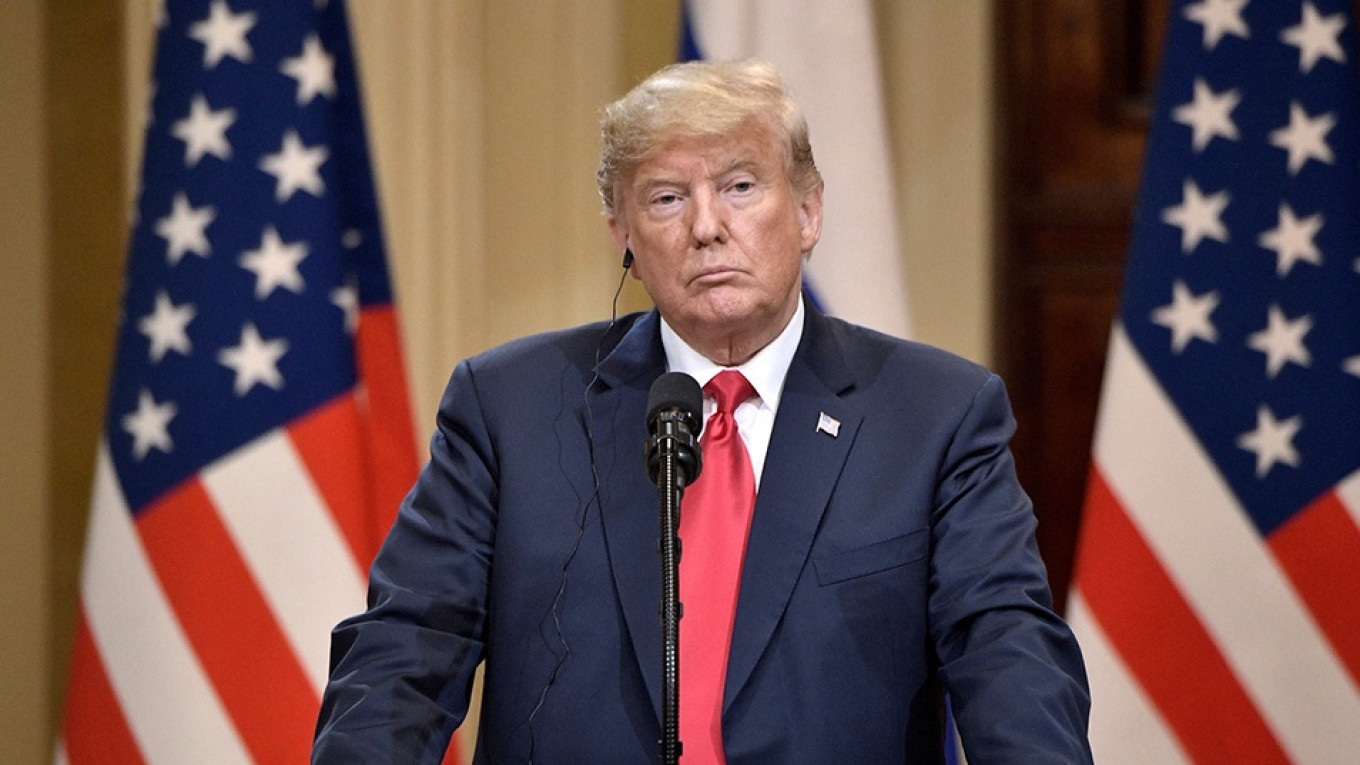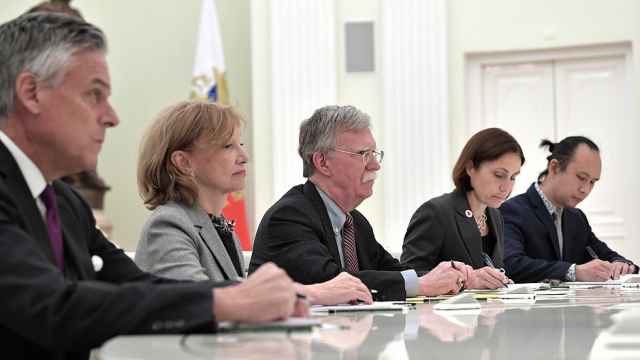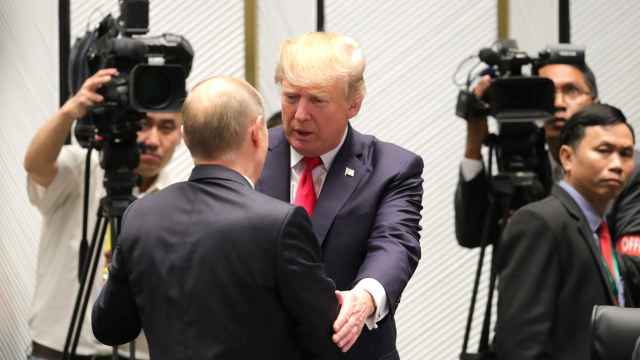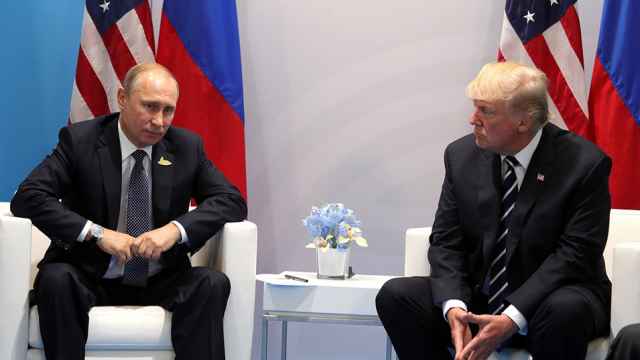U.S. President Donald Trump on Thursday said he was cancelling a planned meeting with his Russian counterpart Vladimir Putin.
The two leaders were expected to meet on the sidelines of the G20 summit in Argentina this weekend.
"Based on the fact that the ships and sailors have not been returned to Ukraine from Russia, I have decided it would be best for all parties concerned to cancel my previously scheduled meeting..." Trump said on Twitter.
"I look forward to a meaningful summit again as soon as this situation is resolved!"
Trump's tweet from aboard Air Force One shortly after takeoff from Washington on the way to Buenos Aires for a Group of 20 summit, was a sudden turnaround.
Roughly an hour earlier, he had told reporters he would probably meet with Putin at the summit and said it was "a very good time to have the meeting."
Trump had also said he would get a final report during the flight to Argentina on the tension in the region after Russia seized Ukrainian vessels near Crimea on Sunday.
Ukrainian President Petro Poroshenko on Thursday accused Putin of wanting to annex his entire country and called for NATO to deploy warships to a sea shared by the two nations.
While it was unclear why there was a sudden change in plans for a meeting, holding talks with Putin now could represent bad optics for the White House at a time when the president is under scrutiny over prior plans to build a Trump Tower in Moscow.
Trump's former personal lawyer Michael Cohen pleaded guilty on Thursday to lying to Congress about the proposed Trump Organization skyscraper in Moscow, prompting Trump to lash out at Cohen as a "liar" and "weak person."
Air Force One
White House spokeswoman Sarah Sanders told reporters on the presidential aircraft that Trump made the decision not to meet Putin after speaking with Secretary of State Mike Pompeo, White House chief of staff John Kelly and national security adviser John Bolton.
The decision appeared to catch the Kremlin by surprise. The Kremlin's spokesman said Moscow had no official information on Trump's decision, and that if true, Putin would have some extra time for a useful meeting at the G20 summit.
Differences over Ukraine, as well as Moscow's role in the civil war in Syria, have been an irritant in U.S.-Russian relations for years.
Democratic U.S. Senator Bob Menendez of New Jersey said Trump was missing an "opportunity to redeem himself, stand up for American values, stand up for international law, stand up for our own national security interests, and he had that opportunity and instead he's abdicating it.”
“It is ironic that this President cannot find his spine to confront Vladimir Putin but can challenge the closest allies the United States has across the globe," Menendez said.
The administration of former President Barack Obama imposed sanctions on Russia for its annexation of Crimea from Ukraine in 2014. That in part brought ties between Washington and Moscow to their lowest point since the end of the Cold War.
Since then, the United States has investigated Russia's possible interference in the 2016 presidential election that Trump won. Russia has denied meddling and Trump has repeatedly said there was no collusion.
Russia seized three Ukrainian navy ships and their crews on Sunday near Crimea over what it said was their illegal entry into Russian waters, which Ukraine denies.
Some of Ukraine's Western allies have raised the possibility of imposing new sanctions on Russia over the episode, which could deliver a blow to the Russian economy.
Kiev is aiming to gain Western support for more economic sanctions against Moscow, secure tangible Western military help, and rally opposition to a Russian gas pipeline that threatens to deprive Ukraine of important transit revenue.
A Message from The Moscow Times:
Dear readers,
We are facing unprecedented challenges. Russia's Prosecutor General's Office has designated The Moscow Times as an "undesirable" organization, criminalizing our work and putting our staff at risk of prosecution. This follows our earlier unjust labeling as a "foreign agent."
These actions are direct attempts to silence independent journalism in Russia. The authorities claim our work "discredits the decisions of the Russian leadership." We see things differently: we strive to provide accurate, unbiased reporting on Russia.
We, the journalists of The Moscow Times, refuse to be silenced. But to continue our work, we need your help.
Your support, no matter how small, makes a world of difference. If you can, please support us monthly starting from just $2. It's quick to set up, and every contribution makes a significant impact.
By supporting The Moscow Times, you're defending open, independent journalism in the face of repression. Thank you for standing with us.
Remind me later.






